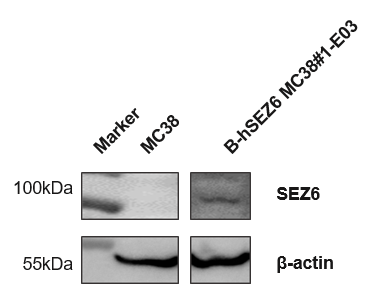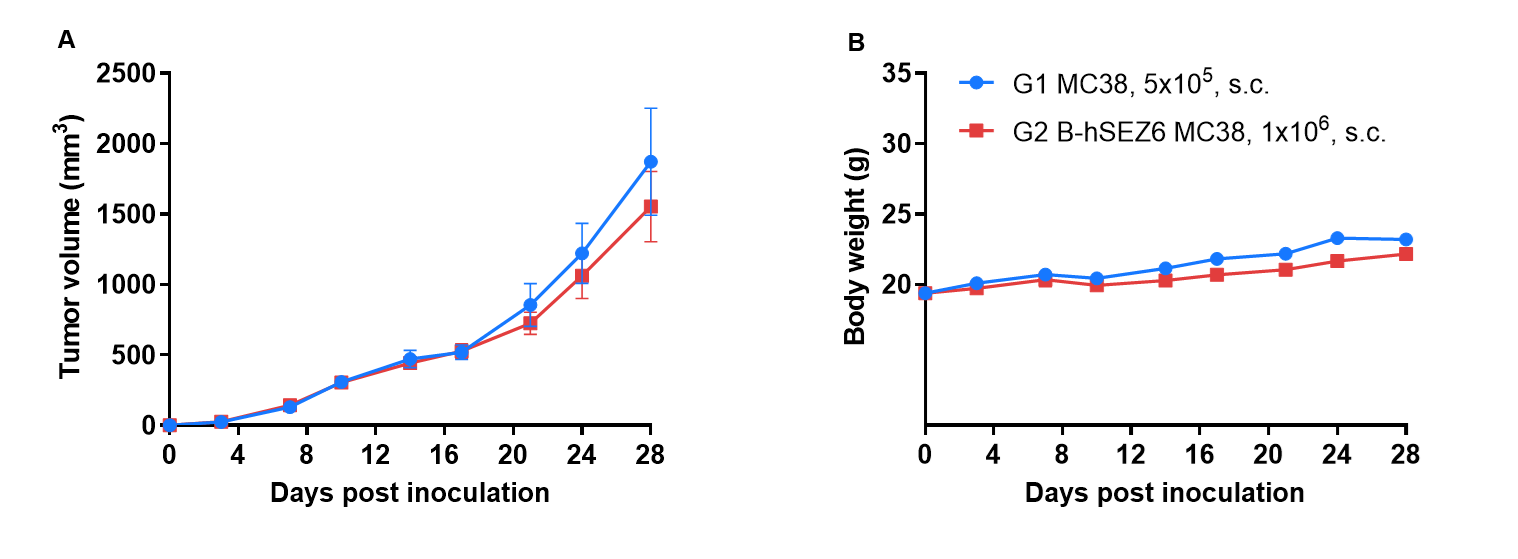
• 321944

SEZ6 expression analysis in B-hSEZ6 MC38 by flow cytometry. Single cell suspensions from wild-type MC38 and B-hSEZ6 MC38 cultures were stained with anti-HLA-SEZ6 antibody. Human SEZ6 was detected in the B-hSEZ6 MC38 cells but not wild-type MC38 cells. The 1-E03 clone of B-HLA-hSEZ6 MC38 cells was used for in vivo experiments.

Subcutaneous homograft tumor growth of B-hSEZ6 MC38 cells. B-hSEZ6 MC38 cells (1x106) and wild-type MC38 cells (5x105) were subcutaneously implanted into C57BL/6 mice (female, 8-week-old, n=6). Tumor volume and body weight were measured three times a week. (A) Average tumor volume ± SEM. (B) Body weight (Mean± SEM). Volume was expressed in mm3 using the formula: V=0.5 X long diameter X short diameter2. As shown in panel A, B-hSEZ6 MC38 cells were able to establish tumors in vivo and can be used for efficacy studies.